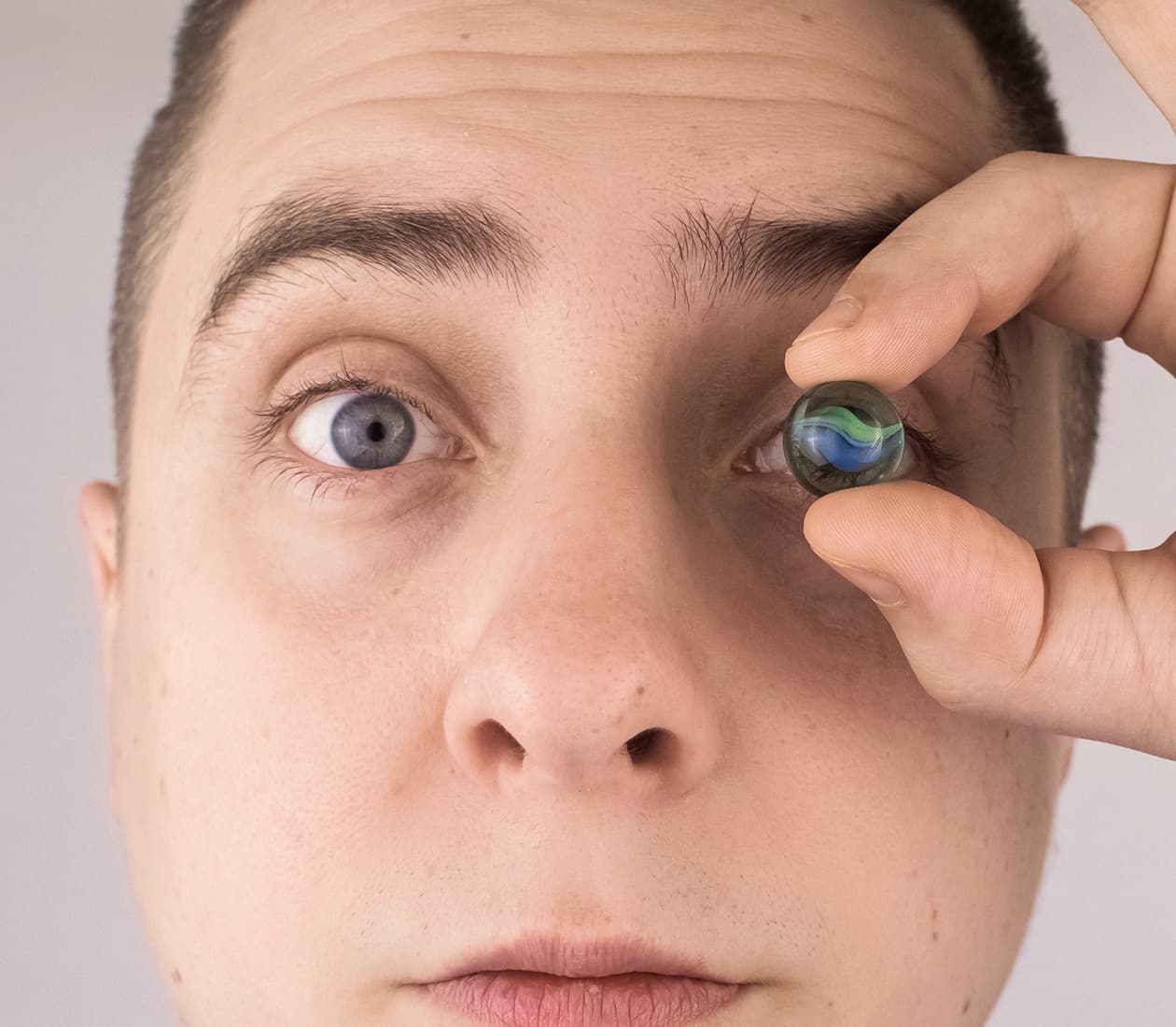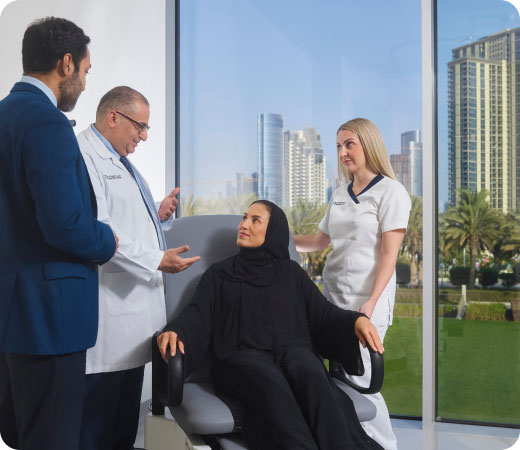
The Orbital Tumors Program at Cleveland Clinic Abu Dhabi provides specialized care and support for people diagnosed with Orbital Tumors.
The Orbital Tumors Program at Cleveland Clinic Abu Dhabi provides specialized care and support for people diagnosed with Orbital Tumors. Our team are highly trained in the structure and function of the eye, and our ophthalmologists and optometrists offer state of the art diagnostic and treatment options for a range of complex eye conditions, including Orbital Tumors.

Orbital tumors are abnormal tissue growths in the structures surrounding the eye. Through a multidisciplinary approach with the experienced Cleveland Clinic Abu Dhabi cancer team, you'll receive expert care for your vision.
We offer every patient a dedicated team of medical experts to support them, and their family, throughout their cancer journey. The multidisciplinary meet daily to discuss each patient’s needs, their progress and to decide the best treatment plan.

Orbital tumors are abnormal growths (either benign or malignant) within the structures around the eye. They usually begin in the orbit or can spread from other parts of the body. The most common types of orbital tumors vary by age, but include cysts, vascular lesions (from blood vessels), lymphomas, neurogenic tumors (from nerves), and secondary tumors (either metastatic or spread directly from the surrounding areas).

The symptoms of orbital tumors may not be present, they may develop over a long period of time, or they may come on very rapidly. Symptoms often include a bulging of the eye from the orbit, causing the eyelids to appear retracted. Decreased vision, vision loss or double vision may be experienced. Some tumors can be felt or seen during examination.
The most common causes of orbital tumors are:

Your doctors will first evaluate your symptoms and medical history if eye cancer is suspected. A careful eye examination will then be performed, during which your vision will be checked, and the inside of your eye – or its surrounding structures – are looked at closely. Your pupils may be dilated with special eye drops to help your doctor see the structures at the back of the eye.
Additional diagnostic tests may be needed, which might include:
Sometimes, a biopsy may be required to determine what type of tumor is present.
If cancer is detected, further diagnostic tests may be performed to stage the cancer.
A range of treatment options exist for orbital tumors. Treatment will depend on the type of tumor, the location and stage of the tumor, but usually consists of the following:
In special types of orbital cancers like lymphoma or melanoma, chemotherapy, immunotherapy or targeted therapy can be offered as part of the multidisciplinary approach. Your clinical team can advise further if a medical oncologist consultation is needed.
The Orbital Tumor Program team works closely with several other departments at Cleveland Clinic Abu Dhabi to ensure the best possible outcomes for our patients, including neurosurgery, otolaryngology, radiation oncology, radiology, plastic surgery, and internal medicine.

Most of the factors that put you at risk of orbital tumors cannot be controlled but decreasing exposure to radiation may reduce the risk.
Frequent eye examinations with an ophthalmologist are the best thing you can do to protect your eyes, and always have any symptoms checked out immediately.

Our Orbital Tumors Program doctors have extensive expertise in the field of cancer and eye disorders. The team provides excellent, Patients First medical care based on current US and international guidelines. Caregivers involved in patient care for this program includes:

Speak with our Contact Center for assistance
Request an Appointment 800 8 2223 International Patients